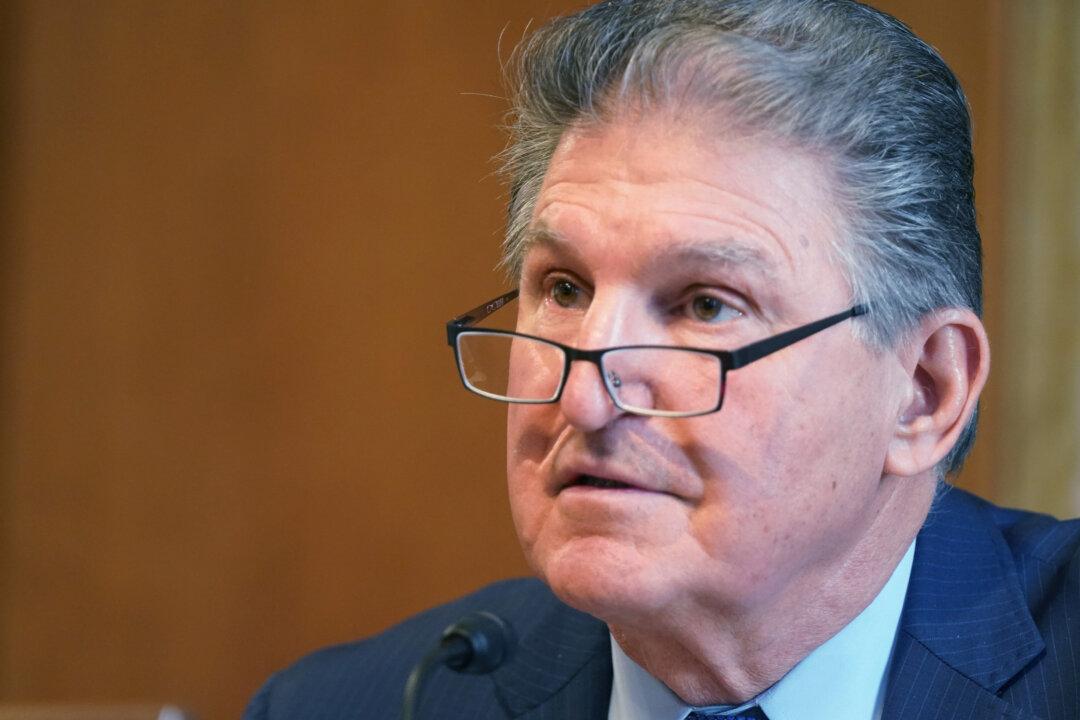Democrats are facing heightened inter-party disputes with Sen. Joe Manchin (D-W.Va.) over a backroom deal that helped win Manchin’s support for the Inflation Reduction Act.
Specifically, Manchin agreed to lend his support to the bill—crucial for the bill’s eventual passage through the evenly divided Senate—in exchange for consideration at a later date of separate legislation that would grant some concessions to fossil fuels and would cut down on regulations of the industry.





